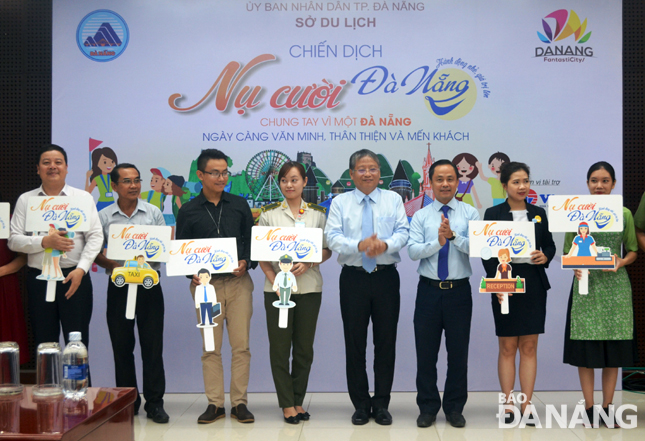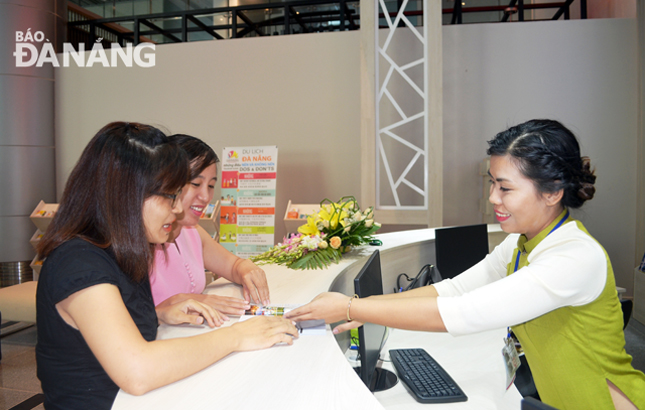'Da Nang Smile' campaign launched
On Tuesday, the Da Nang Department of Tourism launched a ‘Da Nang Smile’ campaign in an effort to make Da Nang a civilised, friendly and hospitable city.
 |
| Vice Chairman Tuan (4th right) and some invited guests at the launching ceremony |
Addressing the launching ceremony, municipal People’s Committee Vice Chairman Nguyen Ngoc Tuan said the campaign is part of a series of activities in preparation for the upcoming APEC Economic Leaders’ Week (AELW) which will take place in the city in November.
Vice Chairman Tuan remarked that a total of about 15,000 domestic and foreign visitors are expected to arrive in the city during the AELW. He highlighted the importance of first impressions of visitors towards employees working for local coach station, airport, restaurants and hotels. He, therefore, noted that employees in the hospitality sector are considered to be enthusiastic and friendly tourism ambassadors for Da Nang. Their smile will help the city extend a warm welcome to visitors, and make a successful AELW.
Mr Tuan said that the campaign aims to appeal for all local residents to show their smiley faces, and their friendly and hospitable attitude and behaviour, towards visitors. Their small action would help the city affirm its ‘Da Nang FantastiCity’ brand name, he added.
 |
| An employee from the municipal Tourism Promotion Centre (right) giving instructions to visitors at the Da Nang International Airport |
The ‘Da Nang Smile’ campaign is being implemented in the city between September and December with a focus on local government employees who are involved in customs, police, aviation and tourism sectors, plus staff at local restaurants and hotels, drivers, tour guides, and local residents.
Special attention is paid to widely publicising the campaign in mass media, and building a code of conduct applicable to those who work in tourism and tourism-related sectors. Importance is attached to releasing handbooks about some common communication sentences in Vietnamese, English, Japanese, Korean, Chinese and Spanish. In addition, training courses on communication and behaviour skills will be organised for local hospitality staff.